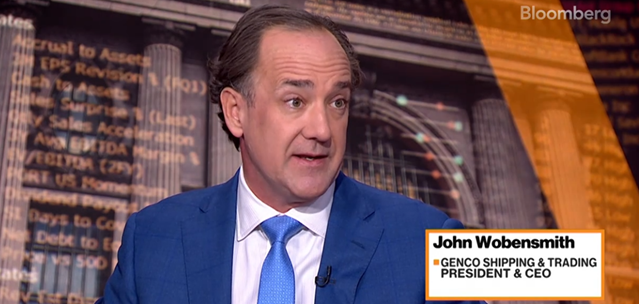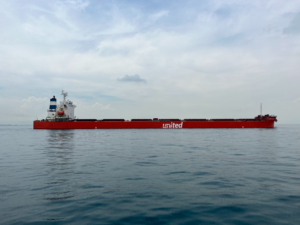
John Wobensmith, CEO of drybulk specialist Genco Shipping and Trading, appeared recently on Bloomberg TV to discuss dry bulk industry trends and broader macroeconomic factors impacting global trade.
Wobensmith provided insights into the current situation for shippers around the Baltimore Harbor, Panama Canal and Red Sea, and the state of the Chinese and Indian economies based on demand for dry bulk commodities.
Genco’s CEO says tons of coal are still waiting to be shipped out of Baltimore after the Key Bridge was struck and destroyed by a container ship. He also talks about ships avoiding the Red Sea and shipping costs.
“You have a million and a half tons that’s sitting there that needs to be moved rather quickly,” he says.
John Wobensmith, the CEO of drybulk specialist firm Genco, looks back at the outlook for the logistics transport industry, which is facing great volatility.
Geopolitical conflicts and the consequential disruption to shipping are likely to continue. “I don’t think that the Red Sea situation is going away anytime soon. I see that lasting for at least another 12 months. I don’t see why any shipowner would want to risk their crew putting them through that situation,” he says.
The Panama Canal is starting to ease up, he explains, as the water levels are starting to get a little better so there are few more ships that are transiting.
On the other hand, there is still an auction system in the Panama Canal which means that you have to participate in order to get in the queue.
“You just cannot show up and go through.”
The chief executive also spoke about the state of the Chinese and Indian economies based on demand for dry bulk commodities.
New trade routes in dry bulk are relatively rare, Genco’s executive explains, but one of the bid trade routes that has been now created is the bauxite trade out of West Africa. Most of that is going into China.
“Baltimore though shipping coal and shipping coal out of the East Coast of the US it’s not a new trade but it has grown. India has really started importing a lot, particularly the metallurgical coal for their steel industry, but also thermal coal. So, we have seen growth not necessarily a new trade route,” he comments.


